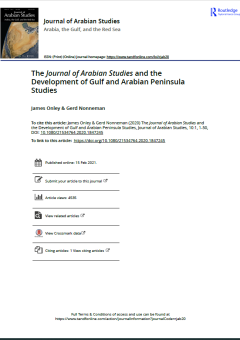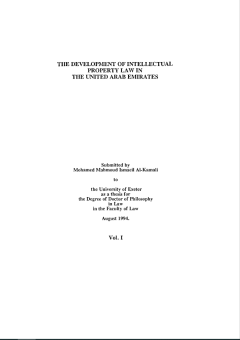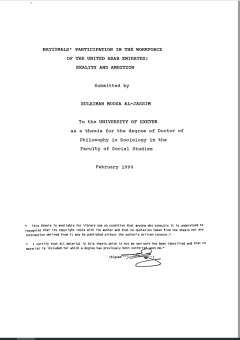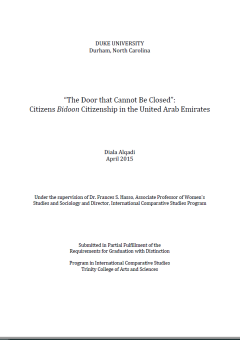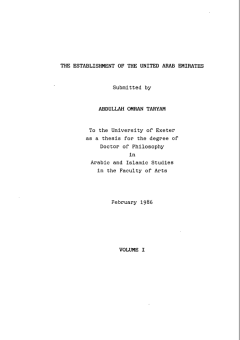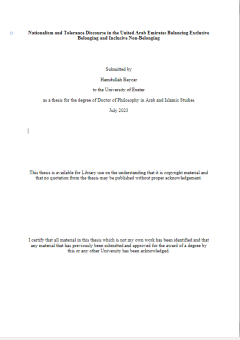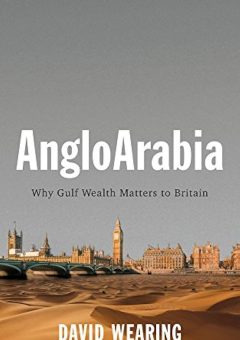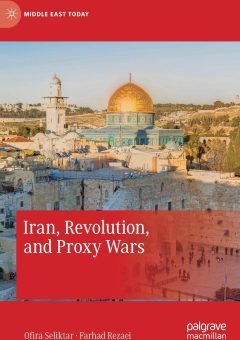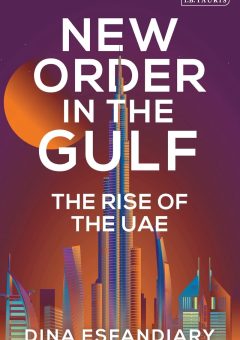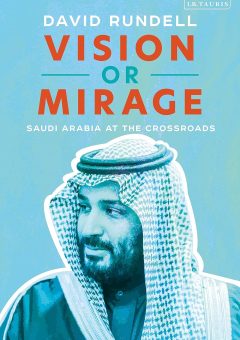Bibliography Language: English
- October 7, 2023
- 10:26 am
Abstract / Review
On the occasion of the 10th anniversary of the Journal of Arabian Studies (JAS), this article offers the first history of the field of Gulf and Arabian Peninsula Studies (GAPS), including the origins and evolution of JAS. It begins with an overview of the origins and evolution of GAPS as
- September 30, 2023
- 8:42 am
Abstract / Review
The United Arab Emirates until recently lacked any specific federal law to deal with intellectual property rights. The only local law which existed in the UAE was the Ras Al-Khaimah Trade Marks Law which was enforceable only within the Emirate of Ras Al-Khaimah. Nevertheless, in the absence of federal intellectual
- September 30, 2023
- 7:00 am
Abstract / Review
This thesis assesses the realities of human resource development and employment and education policies in the UAE. It shows the need to adjust policies in manpower, education, the media and information agencies – and by both Federal and Emirate governments. Improved manpower policies must be part of a more rational
- September 30, 2023
- 5:04 am
Abstract / Review
This project traces how and why people “without” [bidoon] citizenship emerged as a problem in the United Arab Emirates in the 2000s. It examines the reasons the government refuses to grant them citizenship despite regular complaints that citizens are “outnumbered” by migrants. Chapter 2 draws on archived British documents and
- September 30, 2023
- 2:39 am
Abstract / Review
The purpose of this study is to explain the circumstances that persuaded the majority of the emirates of the Gulf to enter into an agreement establishing the federal state of the United Arab Emirates and the conditions under which it was established and flourished. It was no coincidence that the
- September 29, 2023
- 1:30 pm
- September 18, 2023
- 7:00 am
Abstract / Review
In “AngloArabia: Why Gulf Wealth Matters to Britain,” David Wearing analyzes not only how Gulf oil and gas have historically impacted GCC-Britain relations, but also reveals how these controversially reciprocal ties benefit Britain through investment and export of arms, goods, and services; while GCC monarchies in turn strengthen their repressive
- September 18, 2023
- 7:00 am
Abstract / Review
Iran’s military policy is a contentious subject. Ofira Seliktar and Farhad Rezaei provide a comprehensive look at how Iran has been implementing asymmetrical warfare strategy and proxy war since the establishment of the Islamic Revolution in their book Iran, Revolution, and Proxy Wars. Drawing upon comprehensive primary and secondary sources,
- September 18, 2023
- 7:00 am
Abstract / Review
For over a decade now, thinking on regional relations in the Gulf has focused on the competition for regional hegemony between Iran and Saudi Arabia. Today, this perspective is outdated. The smaller Gulf Arab states, led by the United Arab Emirates, are calling for their own goals and interests to
- September 18, 2023
- 7:00 am
Abstract / Review
Something extraordinary is happening in Saudi Arabia. A traditional, tribal society once known for its lack of tolerance is rapidly implementing significant economic and social reforms. An army of foreign consultants is rewriting the social contract, King Salman has cracked down hard on corruption, and his dynamic though inexperienced son,

